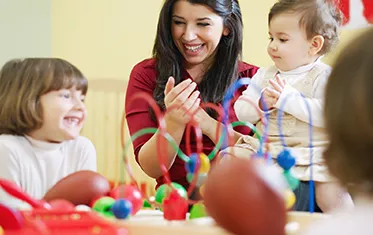As parents, we are instrumental in cultivating and directing our children's development. Comprehension and monitoring child development milestones is an important aspect of parenting that allows us to provide the best possible care for our children. These developmental milestones are important markers on a child's path to healthy growth and development. If you ever have concerns about your child’s progress, consulting a Child Care Hospital in Hebbal Bangalore can help you get professional guidance and reassurance.
The Importance of Tracking Child Development Milestones
Child development milestones include a variety of physical, cognitive, and socio-emotional accomplishments that children achieve at different ages. These milestones are markers of good health and provide insight into potential areas of concern. Parents gain a better understanding of their child's development and can identify any developmental challenges early on by tracking these milestones.
Types of Child Development Milestones
Physical Milestones
- Motor Skills: Crawling, Walking, and Running are examples of motor skills. Gross motor skills such as crawling, walking, and running are examples of physical milestones. These abilities are necessary for exploring their surroundings and developing physical confidence.
- Fine Motor Skills: Grasping, Holding, and Writing are examples of fine motor skills. Coordination of small muscle groups is required for fine motor skills. These skills, which range from holding objects to eventually writing, are essential for tasks such as dressing, feeding, and academic success.
Cognitive Milestones
- Language Development: Speech, Vocabulary, and Communication Language development is a critical component of cognitive development. Children progress from babbling to forming sentences, developing a large vocabulary that allows them to communicate effectively.
- Critical Thinking and Problem-Solving: Problem-solving and critical thinking abilities are also cognitive milestones. Children learn to analyse situations, make decisions, and solve problems as they explore their surroundings.
Social and Emotional Milestones
- Building Relationships and Social Skills: Shaping connections with others, learning to share, taking turns, and empathising are all social milestones. These abilities serve as the foundation for positive relationships and interactions.
- Emotional Regulation and Empathy: The capacity to comprehend and handle emotions, as well as empathise with others, are examples of emotional milestones. Teaching children emotional intelligence provides them with important life skills.
Age-Specific Milestones: From Infancy to Adolescence
- Newborn to Infancy (0-12 months) Babies reach milestones such as rolling over, sitting up, and taking their first steps during this stage. They also start babbling and saying their first words, signalling the beginning of language development.
- Toddlerhood (1-3 years) Toddlers achieve independence and discover their surroundings. Their vocabulary grows rapidly, and they begin to demonstrate cognitive abilities such as sorting and matching.
- Early Childhood (4-6 years) As children enter the early childhood stage, they become more school-ready, demonstrating advances in cognitive skills such as counting and storytelling. Social play becomes more sophisticated, assisting in the formation of friendships.
- Middle Childhood (7-10 years) Problem-solving abilities become more sophisticated, and academic progress takes precedence. Peer interactions are crucial in the development of identity.
- Adolescence (11-18 years) Physical changes occur during puberty, while emotional development and decision-making abilities become more prominent. Adolescents negotiate their changing identities as they prepare for adulthood.
Monitoring Your Child's Developmental Progress
- Red Flags and Warning Signs: Delayed milestones may help to identify potential developmental issues. Seeking professional help if you notice significant delays is critical for early intervention and support. Consulting qualified Paediatricians & Neonatologists in Hebbal Bangalore ensures your child receives expert assessment and care tailored to their specific developmental needs.
- Keeping Track of Milestones: Use tools such as milestone checklists and developmental assessments to track your child's progress. Online child development apps and educational books are excellent resources.
Nurturing Healthy Development at Home
- Creating a Friendly Environment: Playtime and learning activities that stimulate your child's development should be prioritised. An optimistic and assured outlook is fostered by open communication and encouragement.
- Physical Health and Well-Being Promotion: Physical development requires proper nutrition and sleep patterns. Encourage physical activity and outdoor exploration to aid in the development of gross motor skills.
- Promoting Social and Emotional Development: At home, encourage emotional expression and empathy development. Teach your child conflict resolution and coping skills so that he or she can navigate social interactions effectively.
Understanding child development milestones gives parents insight into their child's developmental journey. We become active participants in our children's development by tracking and nurturing milestones. Accept each stage of development and watch as your child blossoms into a confident, capable individual with the skills needed for a bright future. Remember that your dedication and guidance are priceless gifts that will shape your child's life in extraordinary ways.











